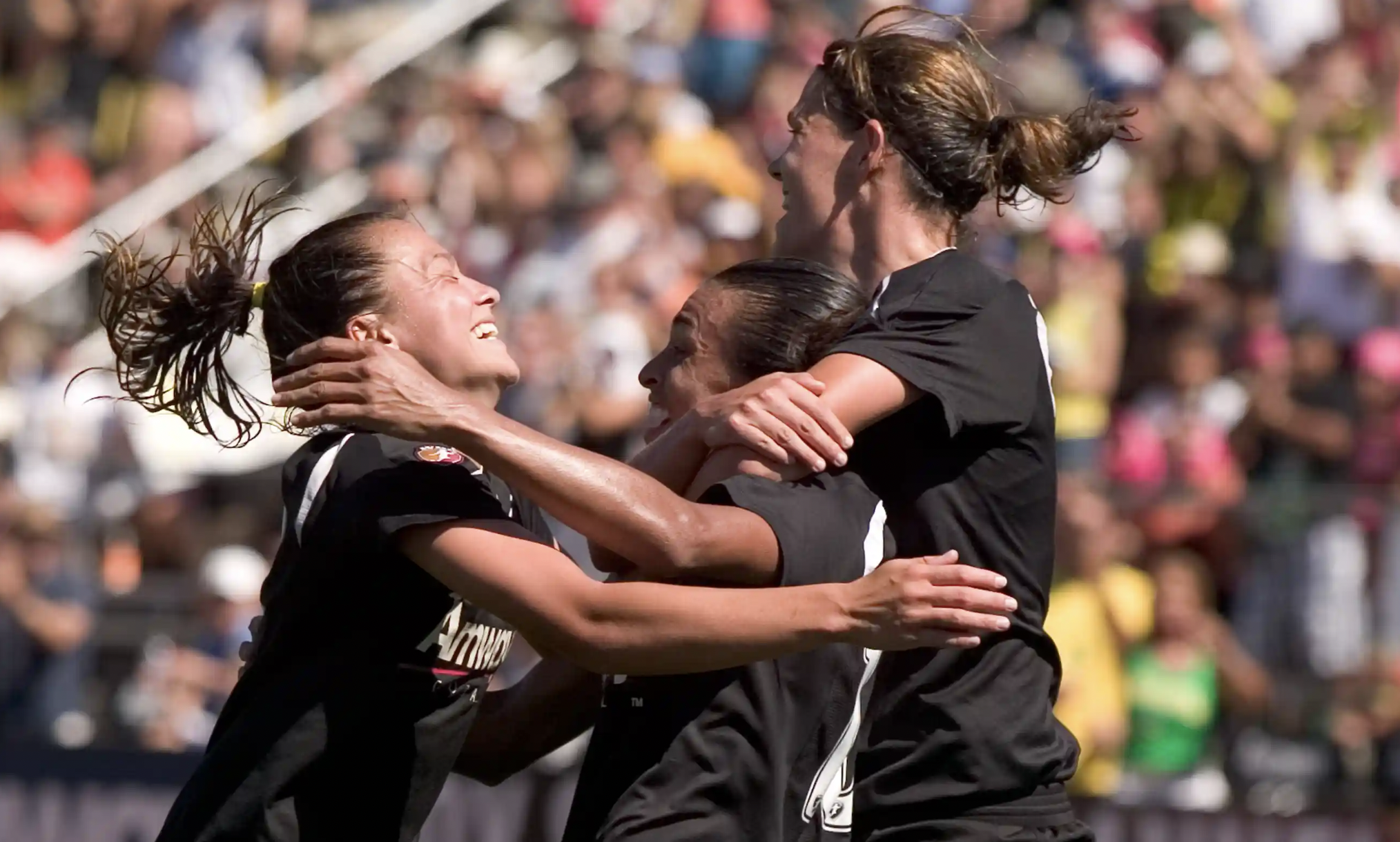Photo by MediaNews Group/Bay Area News/Getty Images
Running away from the cleat-melting turf at Hayward’s Pioneer Stadium, the newly minted 2010 national soccer champions chanted “Obama! Obama!” as they gathered around the champagne-filled coolers in the locker-room. Led by the likes of Brazil’s Marta, Canada’s Christine Sinclair and then-rookies Kelley O’Hara and Ali Riley, FC Gold Pride, the San Francisco Bay Area’s representative in the short-lived Women’s Professional Soccer league (WPS), defeated the Philadelphia Independence 4-0 in the final. As is customary for championship teams in the United States, they would be expecting their invitation to the White House soon after.
The day was 26 September 2010. On 16 November, FC Gold Pride announced they were ceasing operations because of high costs and low ticket sales.
The meeting with the president never materialized. In January 2011, when Marta won her fifth straight Fifa’s Women’s Player of the Year award, she acknowledged her team-mates in a club that did not exist anymore. The demise of the championship team was seen then as an indictment on the viability of the women’s game in the US.
Fast forward to the present and four of those free agents who departed after FC Gold Pride’s dissolution are about to play the 2023 Women’s World Cup in a very different environment. Once a niche event that Fifa branded the M&M’s Cup so as to not tarnish the prestige of its main celebration, the tournament is about to open in Australia and New Zealand to record-breaking audiences and, for the first time, a broadcasting deal negotiated as a stand-alone product instead of bundled with the men’s edition. Fifa will also distribute at least $30,000 per player as prize money, and a total prize pool of $110m.
Sinclair, O’Hara and New Zealand captain Riley are expected to play key roles for their teams, while 37-year-old Marta attempts a full recovery from a knee injury to help Brazil lift their first trophy. All four players feature in the National Women’s Soccer League (NWSL), now 11 years old, still expanding and soon to include another San Francisco Bay Area-based team. O’Hara, now a two-time World Cup champion, was among the players who sued US Soccer for equal pay, now a reality in the US and a vigorous demand elsewhere.
And yet it wasn’t that long ago that professionalism still felt like a dream.
Continue reading at The Guardian.
